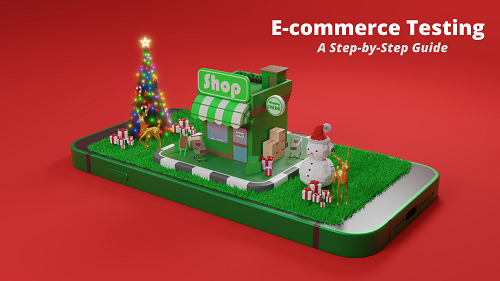Introduction
As the world becomes more digital, more businesses are moving online to reach their customers. Ecommerce platform are the backbone of these online stores, and selecting the right one can make or break a business. There are many different ecommerce platforms available, each with their own unique set of features and benefits. In this article, I will discuss the importance of choosing the right ecommerce platform, the types of ecommerce platforms available, the factors to consider when selecting a platform, as well as popular ecommerce platforms and their features. I will also provide tips for selecting the right ecommerce platform for your business.
Why Choosing the Right Ecommerce Platform is Important?
Choosing the right ecommerce platform is crucial for the success of an online store. Customers expect a seamless and convenient shopping experience, and if the platform is not up to par, they will simply take their business elsewhere. In addition, having the right ecommerce platform can help businesses save time and money by streamlining processes and automating tasks. It can also help businesses scale and grow by providing the necessary tools and integrations to support expansion.
Types of Ecommerce Platforms
There are two main types of ecommerce platforms: hosted and self-hosted. Hosted platforms are cloud-based and are managed by the ecommerce provider. Self-hosted platforms are installed on a server and managed by the business owner or a third-party provider.
Hosted platforms are generally easier to set up and use, as they require no technical knowledge or maintenance. They are also more secure and reliable, as the ecommerce provider is responsible for security updates and backups. Popular hosted ecommerce platforms include Shopify, BigCommerce, and Squarespace.
Self-hosted platforms, on the other hand, offer more customization and control over the ecommerce store. They are also generally less expensive than hosted platforms, as there are no ongoing subscription fees. However, they require technical knowledge to set up and maintain, and businesses are responsible for their own security updates and backups. Popular self-hosted ecommerce platforms include Magento, WooCommerce, and OpenCart.
Factors to Consider When Choosing an Ecommerce Platform
When selecting an ecommerce platform, businesses should consider several factors, including:
Budget
The cost of an ecommerce platform can vary widely, with some platforms offering free plans and others costing thousands of dollars per year. Businesses should consider their budget and the expected return on investment when selecting a platform.
Features
Different ecommerce platforms offer different features, such as product management, payment processing, shipping integrations, and marketing tools. Businesses should consider which features are most important for their specific needs.
Scalability
As businesses grow, they will need an ecommerce platform that can accommodate their expanding needs. It’s important to select a platform that can scale and grow with the business.
Ease of Use
The ecommerce platform should be user-friendly and easy to navigate for both the business owner and customers. A complicated or confusing platform can lead to a negative shopping experience.
Security
Security is of utmost importance for ecommerce platforms, as they handle sensitive customer data and payment information. Businesses should select a platform that offers secure payment processing and data encryption.
Popular Ecommerce Platforms and Their Features
Shopify
Shopify is one of the most popular hosted ecommerce platforms, offering a wide range of features and integrations. It is known for its ease of use and user-friendly interface. Some of its key features include:
- Product management
- Payment processing
- Shipping integrations
- Marketing tools
- Mobile optimization
- Customer support
Magento
Magento is a popular self-hosted ecommerce platform, known for its scalability and flexibility. It is highly customizable and offers a wide range of features, including:
- Product management
- Payment processing
- Shipping integrations
- Marketing tools
- Mobile optimization
- Customer support
Woo Commerce
Woo Commerce is a self-hosted ecommerce platform that is built on WordPress. It is known for its ease of use and flexibility. Some of its key features include:
- Product management
- Payment processing
- Shipping integrations
- Marketing tools
- Mobile optimization
- Customer support
Comparison of Popular Ecommerce Platforms
Shopify vs. Magento
Shopify and Magento are two of the most popular ecommerce platforms, but they differ in several ways. Shopify is a hosted platform, while Magento is self-hosted. Shopify is known for its ease of use and user-friendly interface, while Magento is known for its customization and flexibility.
Shopify vs. Woo Commerce
Shopify and Woo Commerce are both hosted ecommerce platforms, but they differ in several ways. Woo Commerce is built on WordPress and is highly customizable, while Shopify is known for its ease of use and user-friendly interface. Shopify is also more expensive than Woo Commerce.
Magento vs. Woo Commerce
Magento and Woo Commerce are both self-hosted ecommerce platforms, but they differ in several ways. Magento is known for its scalability and flexibility, while Woo Commerce is built on WordPress and is highly customizable. Magento is also more expensive than Woo Commerce.
Pros and Cons of Hosted and Self-Hosted Ecommerce Platforms
Hosted Ecommerce Platforms
Pros:
- Easy to set up and use
- Secure and reliable
- Support and maintenance included
- No technical knowledge required
Cons:
- Limited customization options
- Subscription fees can be expensive
- Less control over the platform
Self-Hosted Ecommerce Platforms
Pros:
- Highly customizable
- No ongoing subscription fees
- Full control over the platform
Cons:
- Technical knowledge required
- Security and maintenance are the responsibility of the business owner
- Potentially more expensive upfront costs
Tips for Selecting the Right Ecommerce Platform for Your Business
When selecting an ecommerce platform, keep the following tips in mind:
- Consider your budget and expected return on investment
- Determine which features are most important for your specific needs
- Select a platform that can scale and grow with your business
- Choose a platform that is user-friendly and easy to navigate
- Ensure that the platform offers secure payment processing and data encryption
Migration to a New Ecommerce Platform
If you are currently using an ecommerce platform but are considering switching to a new one, there are several steps you should take to ensure a smooth transition. These include:
- Backing up your data
- Testing the new platform before fully migrating
- Redirecting URLs to avoid broken links
- Communicating the switch to customers and stakeholders
Conclusion
Choosing the right ecommerce platform is crucial for the success of an online store. Businesses should consider their budget, required features, scalability, ease of use, and security when selecting a platform. Hosted and self-hosted platforms both have their pros and cons, and businesses should consider their specific needs when choosing between them. By following the tips outlined in this article, businesses can select the right ecommerce platform for their needs and set themselves up for success.






